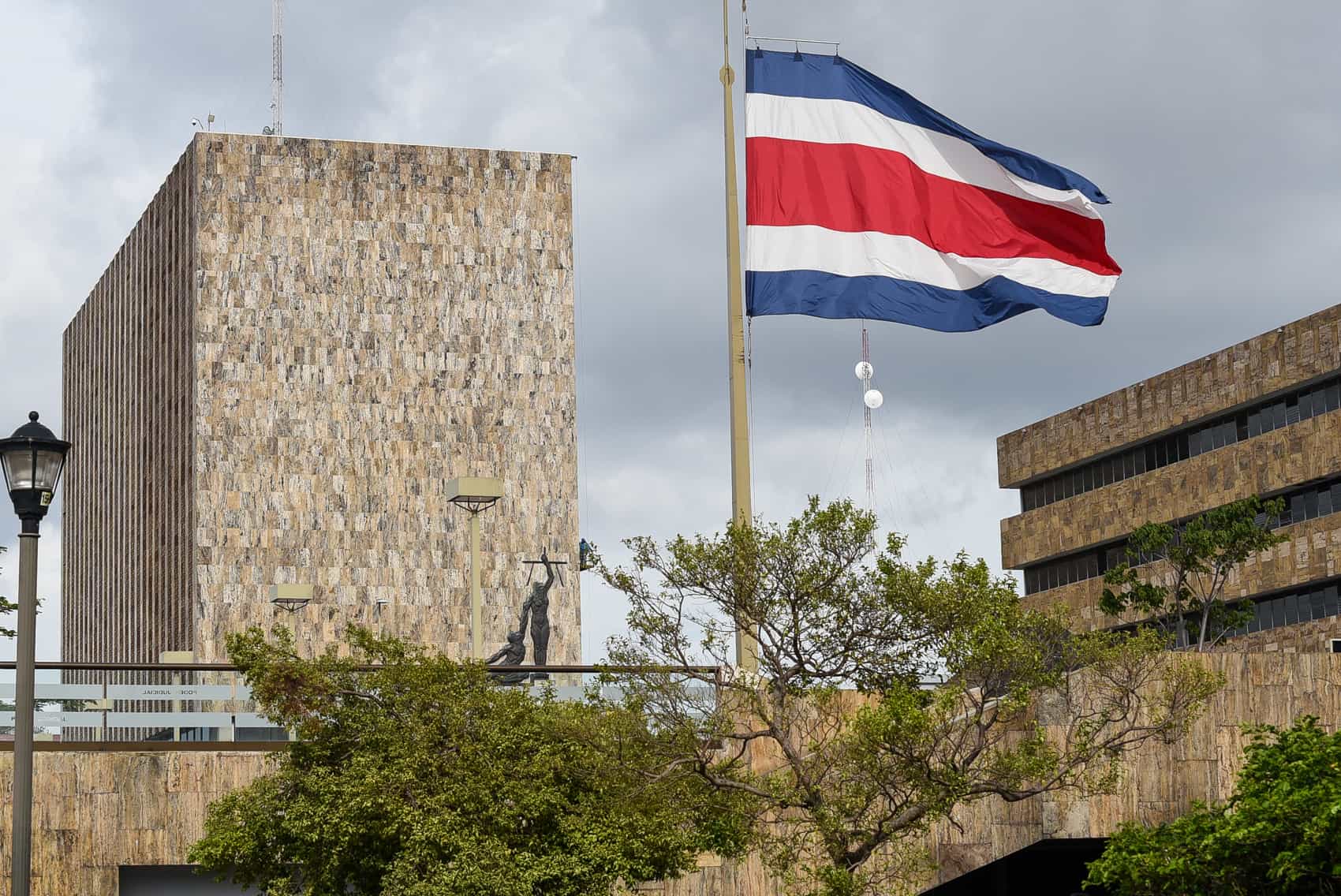A week after a Judicial Investigation Police (OIJ) chief was arrested in a corruption investigation, the heads of Costa Rica’s three branches of government jointly presented a reform bill Wednesday that would create specialized drug courts, among other reforms to the judicial branch.
The bill, developed with the judicial branch, would create a specialized court system based in San José that would exclusively hear drug trafficking and organized crime cases with special protection for judges and their loved ones. The bill would also create a mechanism to report judicial malfeasance.
A second bill would require annual assessments of judicial branch personnel, including members of the OIJ, the Prosecutor’s Office, the Public Defender’s Office, and courts.
Court President Zarela Villanueva Monge said the new court would strengthen the tools available to Costa Rica to transparently and effectively deal with the dangers inherent in prosecuting organized crime. Villanueva said that the drug courts would be allowed to issue longer preventive detentions and sentences than traditional criminal courts.
She also said that its location in San José would allow authorities to better ensure the physical safety of judges than if they were hearing cases in more remote parts of the country.
Alongside Villanueva was President Luis Guillermo Solís, Legislative Assembly President Rafael Ortiz, and Supreme Election Tribunal President Luis Antonio Sobrado.
Debate over the need for specialized judges and courts to review drug trafficking cases followed the arrest of a prominent judge in the Caribbean province of Limón, Judge Rosa Elena Gamboa, in May 2014. Prosecutors accused Gamboa of accepting money from drug traffickers in exchange for favorable rulings on preventive measures for cartel members caught by law enforcement.
Gamboa was also accused of brazenly recruiting other judges to accept bribes.
Corruption in the judicial branch is not isolated to Limón. On June 17, OIJ officers arrested the OIJ delegation chief in Quepos, near Manuel Antonio, for allegedly intimidating U.S. expats with illegal detentions. Other judges and OIJ officers have been brought up on corruption charges in recent years in San José and Santa Cruz.






